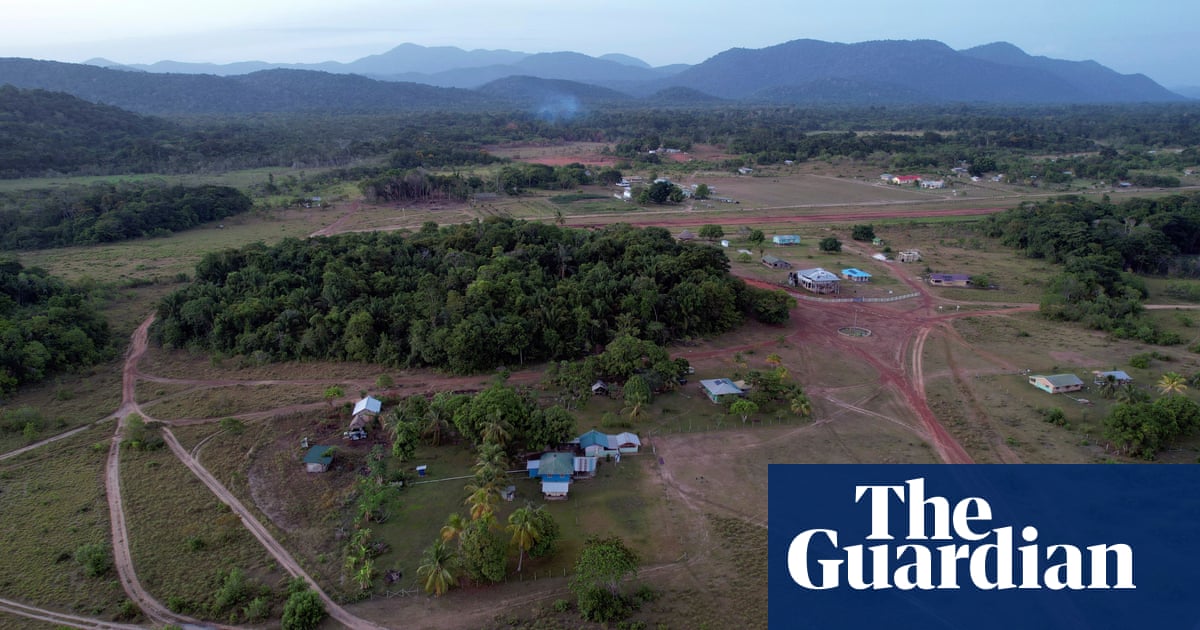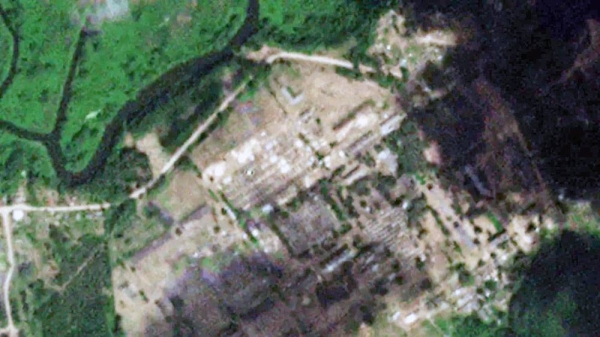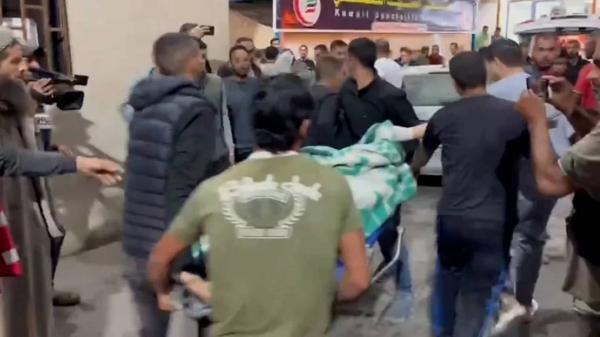
New satellite photos obtained on Tuesday show significant damage to Syrian villages and surrounding farmland as a result of a government offensive on the last rebel stronghold in the country.
The images, provided to The Associated Press by the Colorado-based Maxar Technologies, show fires in olive groves and orchards during harvest season around Kfar Nabudah and Habeet, two villages on the edge of Idlib province where the latest fighting has focused.
The fires were apparently sparked by intense bombing in the area.
Kfar Nabudah fell to government control on Sunday. Activists, experts and Maxar say the crop burning is part of a “scorched earth” campaign that adds to the hardship of 3 million people in the rebel stronghold.
The UN said fires, triggered by bombings, destroyed staple crops such as wheat and barley, compounding the already fragile humanitarian conditions in the area.
On Tuesday, the Idlib Health directorate said government rockets hit a hospital in the town of Kfar Nubul, causing extensive damage to the facility and to its generators and cars parked outside. The directorate said the hospital is now out of order.
This brings the total number of regional health facilities directly hit in the offensive to 21, including at least five which the UN had identified as medical centers.
Amnesty International has said that attacks on health facilities in opposition-held areas in Syria is part of a well-established pattern by government forces and their allies.
Fighting has raged in Idlib and the surrounding areas since April 30 as Syrian troops pushed into the enclave from the south while unleashing a wave of intense bombing over the overcrowded area.
The UN says the violence has exacted a heavy toll on civilians, displacing already more than 200,000 people and targeting health facilities and schools. The UN Office for the Coordination of Humanitarian Affairs said nearly 1.3 million of the enclave’s residents had already been displaced by violence in other parts of Syria.
“The potential longer-term impact on the civilian population may be compounded as the violence is occurring during the harvest season,” it said. “As the hot summer weather sets in, more fires can occur, further disrupting normal food production cycles and potentially reducing food security for months to come.”












